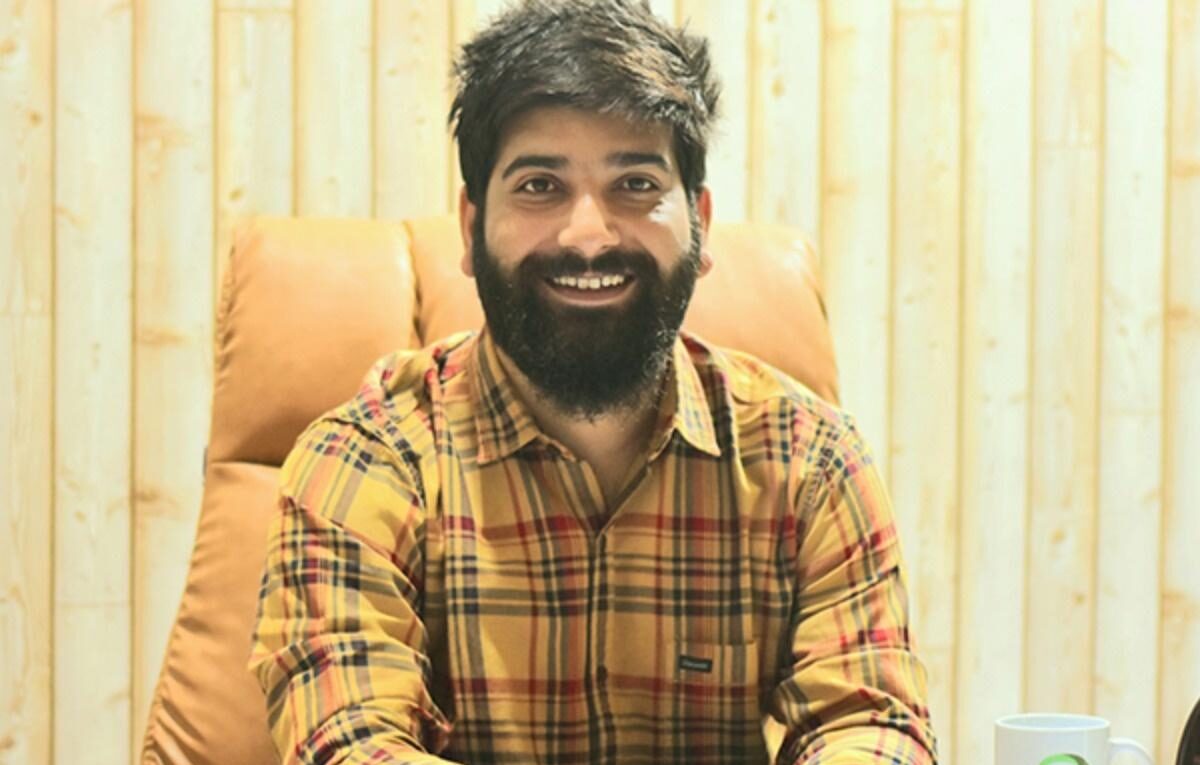Entrepreneurs
Malik Aadil’s Groxery Strives for Expansion Amidst Kashmir’s Internet Challenges

Malik Aadil, a visionary entrepreneur and founder of the e-grocery startup Groxery, is navigating the challenging landscape of Kashmir’s internet connectivity to bring essential services to the region. At 28 years old, Aadil returned to his roots in the Bandipora district of Kashmir, launching Groxery in March, determined to address the pressing needs of fellow Kashmiris during the COVID-19 lockdowns.
Aadil’s ambition for Groxery faces a formidable obstacle—Kashmir’s limited 2G internet speeds. In an interview, he lamented how the slow connectivity hampers the scalability of his business, citing missed opportunities for daily orders and app downloads. The Groxery app, designed to assist Kashmiris in procuring groceries during lockdowns, is constrained to a mere 7.8 MB in size, limiting features like real-time notifications and live order tracking. “We are unable to add too many features to the app because if the app size increases, customers will have a problem downloading and using it,” Aadil explains. The workaround involves delivery executives manually calling customers for directions, a time-consuming process that could be streamlined with faster internet.
Despite the hurdles, Aadil’s resilience shines through. Investing around Rs5.5 crore in Groxery since March, he has financed the venture through savings and revenues from his event management business. The start-up currently employs over 40 local Kashmiri youth, serving approximately 35 pin codes in and around Srinagar. Aadil envisions expansion into Jammu and the launch of an in-house brand featuring over 100 grocery items.
To adapt to the region’s internet challenges, Groxery has incorporated phone and WhatsApp orders into its business model, constituting 20 percent of total orders. However, Aadil emphasizes that 4G connectivity is essential for building a more user-friendly app and enhancing the overall customer experience. Kashmir has a long history of internet restrictions, with the 2G connectivity enforced after the revocation of Article 370 in August 2019. The region faced a staggering 213 days without internet between August 2019 and March 2020, the longest shutdown in any democracy. Even after the restoration, the limited 2G connectivity persists, affecting businesses, education, and daily life.
In response to the challenges posed by internet restrictions, an application was filed in the Supreme Court seeking the restoration of 4G services in J&K. Technical analysis revealed the significant disparity between 2G and 4G speeds, impacting download times and video playback. The Kashmir Chamber of Commerce and Industry, represented by Sheikh Ashiq Ahmad, emphasizes the critical need for a concrete policy decision to enhance data connectivity. As of August 2020, the region had witnessed substantial job losses and businesses incurring losses of Rs40,000 crore. Ahmad urges the government to proactively address the connectivity issues, especially in the digital age accelerated by the pandemic.
Legal experts, such as Prasanth Sugathan from the Software Freedom Law Centre, highlight the need to approach the courts for a more permanent solution. Despite a recent amendment limiting internet shutdowns to 15 days, concerns persist about the potential for repeated disruptions. In the face of these challenges, Malik Aadil’s Groxery stands as a testament to entrepreneurial spirit, navigating obstacles to provide essential services and striving for growth despite the limitations imposed by Kashmir’s internet connectivity.
Malik Aadil’s journey with Groxery reflects not only the resilience of an entrepreneur but also the pressing need for improved internet connectivity in Kashmir. As businesses strive to adapt to the digital age, the region’s economic growth hinges on addressing these challenges and fostering a more conducive environment for innovation and expansion.
